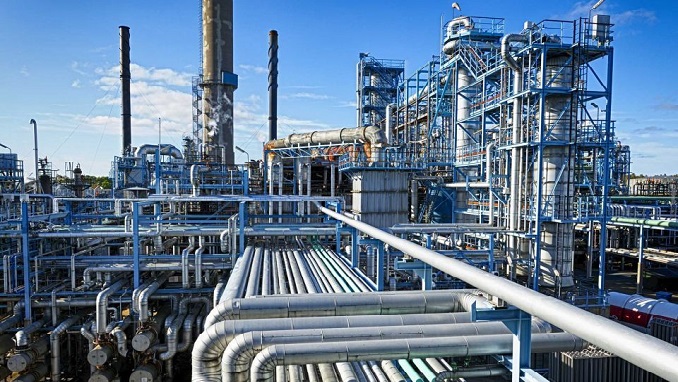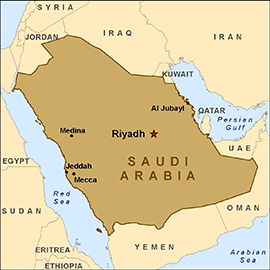Saudi Arabia to invest in Russian petrochemicals plant
November 7, 2018 | Expert Insights

Oil major Saudi Aramco and the kingdom’s petrochemicals giant Saudi Basic Industries Corporation (SABIC) are ready to invest into building a processing plant in Russia, according to Saudi Energy Minister Khalid al-Falih.
Background
Energy Cooperation between Saudi Arabia and Russia has been on the rise, particularly after the rise in volatility in the oil markets.
Earlier in the year, the Russian petrochemical group Sibur was in talks with Saudi Aramco to set up a venture to produce synthetic rubber, its chief said in a move highlighting growing cooperation between OPEC leader Saudi Arabia and Russia, the biggest non-OPEC oil exporter. The deal between OPEC and Russia has opened the door to political dialogue and has also encouraged talks on broader bilateral investment in the various sector.
Sibur focuses mainly on serving clients in the former Soviet Union but its exports of polymers are set to rise with the launch of a new $9 billion plant in Tobolsk in Siberia over the next couple of years. It also wants to build a major complex in east Siberia in the next decade to serve Asian markets as part of a broader plan by gas export monopoly Gazprom to supply gas to China.
The two companies signed a cooperation memorandum last year when Saudi King Salman visited Russia but so far have not disclosed project details.

Analysis
Oil major Saudi Aramco and the kingdom’s petrochemicals giant Saudi Basic Industries Corporation (SABIC) are ready to invest into building a processing plant in Russia, according to Saudi Energy Minister Khalid al-Falih.
The minister said that the Saudi partners are hoping to cooperate with Sibur, Russia’s largest petrochemicals firm.
“I hope our cooperation with Sibur will allow Saudi Aramco and SABIC to invest into building of a petrochemical plant in Russia,” al-Falih told Rossiya 24, Russia’s 24-hour news channel.
The minister also said that Saudi Arabia is currently discussing the opportunity of building a synthetic rubber plant in the Saudi city of Jubail with French energy major Total, China’s Sinopec, and Russia’s Sibur.
“We are in advanced discussion with Sibur, as well as with Total and Sinopec,” al-Falih said. “The consortium is looking to build a plant for producing synthetic rubber in Jubail. I’m sure the plant will be built.”
The partners are currently looking for suitable technical, business, and engineering solutions, according to Sibur Chief Executive Officer Dmitry Konov
“We are launching a joint enterprise to produce synthetic rubber in India this year,” Konov said, stressing that the production will be powered by Russian technology. “We are trying to apply the same approach in Saudi Arabia.”
Saudi Aramco and Sibur signed a tentative cooperation agreement last year. Russian Energy Minister Alexander Novak said at that time the two petrochemical giants planned to ink a $1.1-billion deal on a factory project in Saudi Arabia.
The International Energy Agency raised its outlook for U.S. shale oil growth, saying the country was poised to grab market share from rival OPEC and further develop its chemical industry. The IEA also said petrochemicals would become one of the main sources of global oil and gas demand growth.
Konov said that despite rising U.S. output, global demand for polymers was set to grow faster than U.S. capacity additions, meaning the market was unlikely to face a significant glut any time soon.
Assessment
Our assessment is that the growing Saudi-Russian cooperation is a result of volatile oil markets and Saudi’s large investment diversification programme. We believe that Saudi is approaching Russia for its expertise in petrochemicals and other energy-related fields to help diversify its largely petroleum-based economy.








Comments